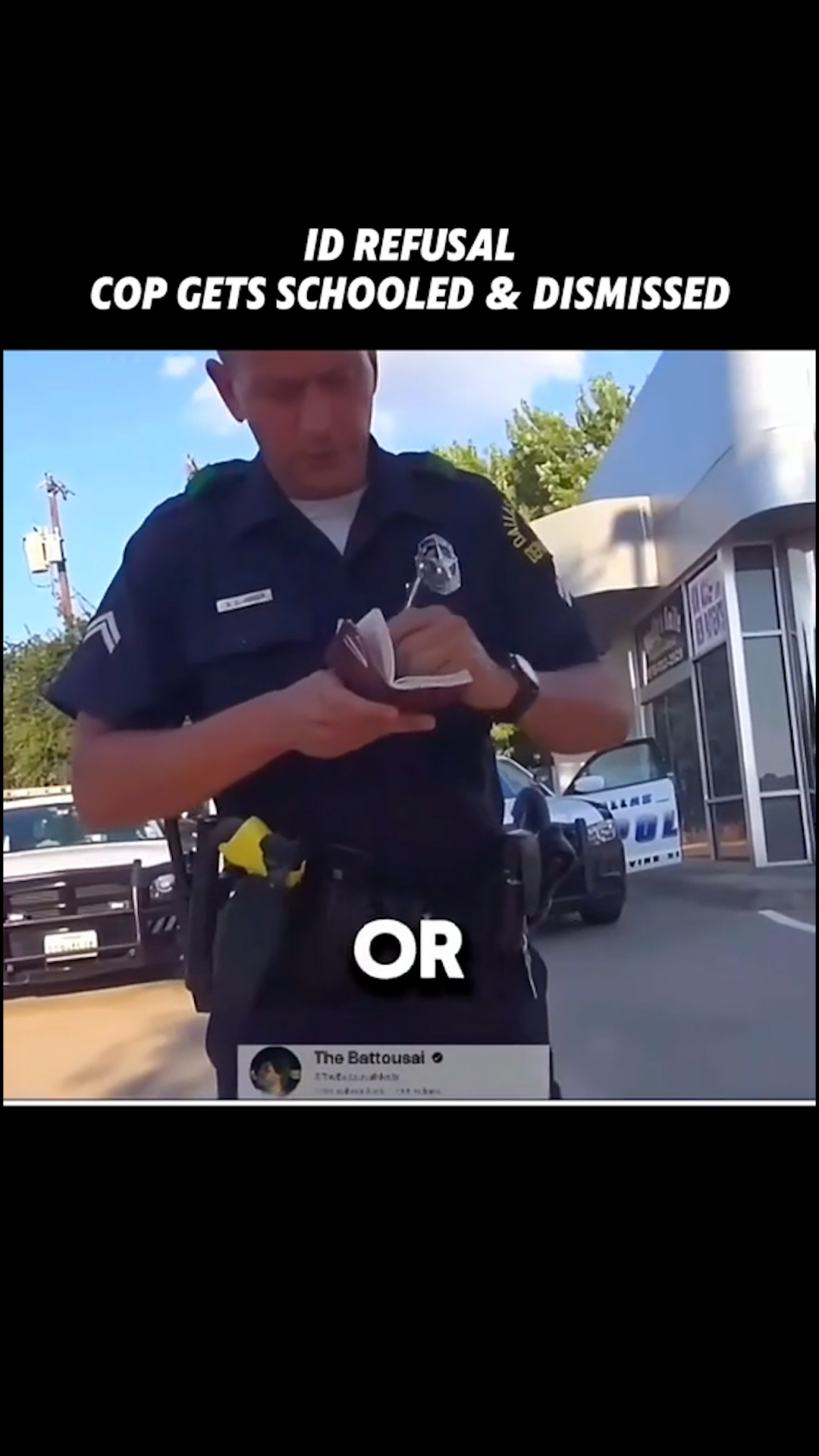
In a striking moment caught on video, a Texas police veteran with more than two decades of service publicly acknowledged his mistake during a tense street encounter. The situation began when a man calmly cited Texas Penal Code 38.02, which clearly outlines that citizens are not required to provide identification unless they are being lawfully detained in connection with a suspected crime.
At first, the officer pressed for the man’s name and date of birth, insisting that compliance was necessary. The man respectfully pushed back, stating that without reasonable suspicion, he wasn’t obligated to identify himself. The tension built — until the officer took a breath, reconsidered, and made a surprising admission.
“I owe you an apology,” the officer said. “You’re right — you don’t have to give your ID unless you’ve committed a crime.”
That simple acknowledgment changed everything. The exchange shifted from confrontation to mutual respect. Viewers across social media have praised the officer for demonstrating humility and accountability — something rarely seen in high-pressure police interactions.
“I’ve been doing this for 25 years,” he added. “I wish I were perfect — but I’m not.”
The man’s composed defense of his rights, paired with the officer’s willingness to admit fault, has reignited discussions about civil rights, police education, and how well citizens truly understand the laws that protect them.
This brief but powerful encounter serves as a clear reminder: understanding your rights can change the entire outcome — even when dealing with someone who’s worn the badge for decades.


